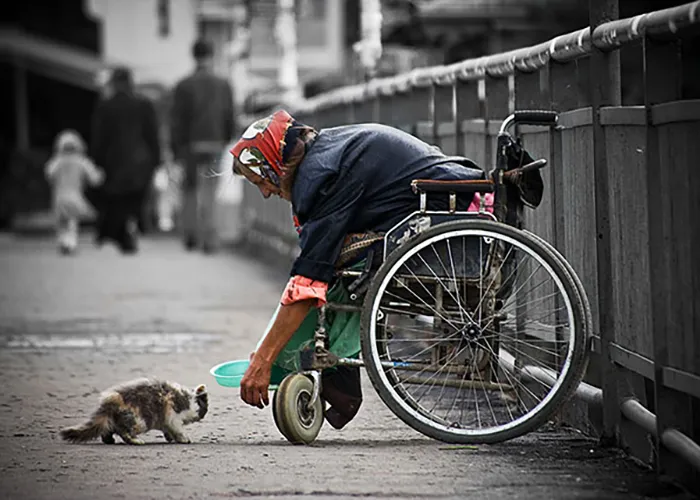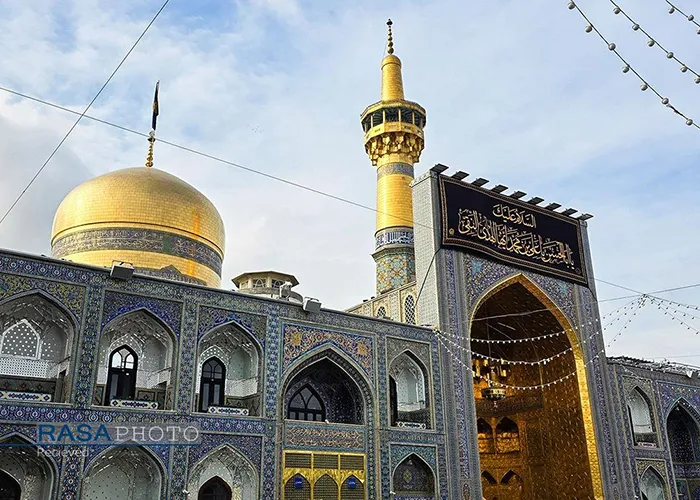Hadith Of The Week – Volume01 Issue17
The Wisdom of Generosity in the Fight Against Poverty
On the 17th of October, the world observes the International Day for the Eradication of Poverty. In light of this occasion, we reflect on a profound hadith from Imam Ali (AS) that sheds light on the true meaning of wealth and poverty. Imam Ali (AS) said:
شَحیحٌ غَنِیُّ أفْقَرُ مِن فَقیرٍ سخِیٍّ (مواعظ عددیّه، ص ٢٢)
“A miserly rich person is poorer than a generous poor person!”
(Mawa’iz Adadiyah, p. 22)
This powerful saying carries timeless wisdom, encouraging us to rethink our perceptions of wealth, poverty, and generosity. On this special day, it’s essential to draw valuable lessons from this hadith, not just for individuals but for families, community leaders, and society as a whole. Below are key educational messages from this hadith, tailored for different groups, to inspire generosity, justice, and the eradication of poverty.
Messages for Youth and Teenagers:
“Practice Generosity from a Young Age”
This hadith encourages young people to start practising generosity early in life. Habits formed in youth shape one’s character in adulthood. By giving to others and caring for those in need, teenagers and young adults can develop empathy and social responsibility. Generosity is a virtue that, once established in youth, remains a guiding principle throughout life, ensuring that material success is balanced with compassion.
“Strengthen Your Sense of Justice”
The hadith teaches young people the importance of justice and fairness. If those with wealth were generous and not greedy, poverty could be eradicated. This awareness encourages youth to fight inequality and advocate for a fairer distribution of resources. They can become active in social causes, standing against greed and selfishness, and working towards a more just society where the rich help uplift the poor.
Messages for Parents:
“Teach Generosity from an Early Age”
Parents play a crucial role in shaping their children’s values. Teaching generosity from an early age helps children understand the importance of sharing and helping those less fortunate. Through stories, examples, and family discussions, parents can pass on the value of kindness, instilling a sense of responsibility toward others and creating a future generation that values generosity over material gain.
“Cultivate Generosity Through Daily Actions”
Rather than just talking about generosity, parents should actively incorporate it into daily life. Small, practical acts of giving, whether through helping a neighbor or donating to charity, can have a lasting impact on children. By making generosity a part of the family’s routine, parents help their children internalize this value, allowing them to experience the joy of giving and making it a natural part of their character.
Messages for Imams and Leaders of Islamic and Cultural Centres:
“Highlight the Importance of Islamic Charitable Practices”
Imams and community leaders can use this hadith to emphasize the role of Islamic charitable practices such as Zakat, Sadaqah, and Khums. These financial obligations are designed to reduce poverty and promote fairness in society. Imams can educate their congregations on how these practices, when followed diligently, can alleviate poverty and foster solidarity, ensuring that no member of the community is left behind.
“Promote a Culture of Generosity”
By delivering sermons and conducting educational programmes, Imams can inspire their communities to prioritise generosity and avoid greed. Stressing the spiritual and social benefits of giving, leaders can encourage individuals to embrace a lifestyle that balances material wealth with a commitment to helping others. Promoting a culture of generosity helps create a stronger, more unified community where the needs of the less fortunate are met.
Messages for Muslim Communities:
“Recognise the Virtue of Generosity and the Harm of Greed”
The hadith highlights that being miserly, even with great wealth, leads to spiritual poverty. Muslim communities must understand the destructive nature of greed and the virtues of generosity. By adopting generous behaviours, communities can collectively work towards eliminating poverty and creating a more compassionate and cohesive society where wealth is used for the common good.
“Re-evaluate Social Norms About Wealth and Poverty”
This hadith invites communities to rethink their perceptions of wealth and poverty. Society often views the financially poor as needy, but this hadith suggests that the true “poverty” lies in being miserly despite having wealth.
“Leverage Public Opinion to Challenge Greed and Promote Generosity”
Communities can use the power of social awareness and public opinion to push for change. The hadith invites us to reconsider who the truly “poor” are—those who are greedy despite their wealth. Muslim communities should apply social pressure to challenge this behaviour, encouraging wealthier members to adopt a spirit of generosity. By creating an environment where miserliness is frowned upon and generosity is celebrated, communities can help reform selfish attitudes. Public opinion, when unified, can be a powerful force to hold people accountable and drive positive change in how wealth is used.
editor's pick
news via inbox
Subscribe to the newsletter.




